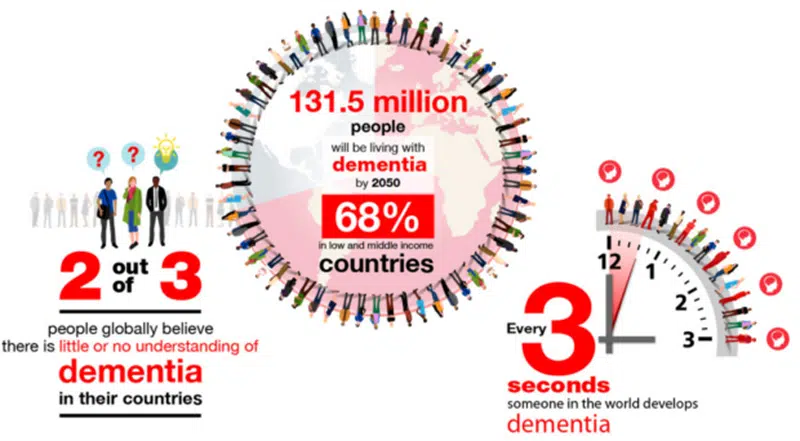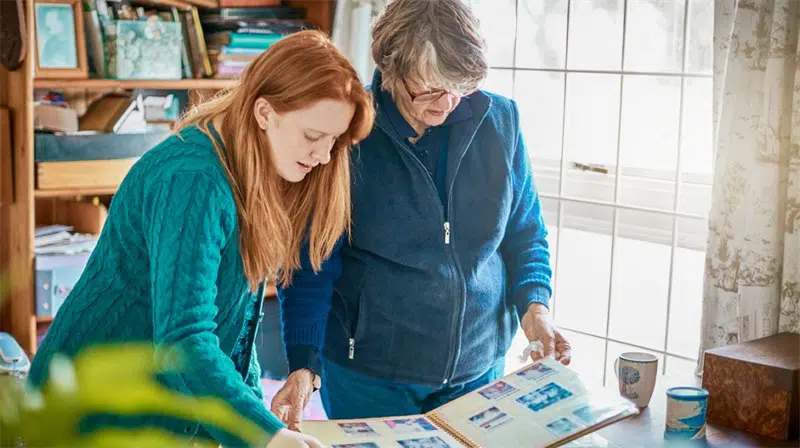It's never easy having to come to terms with the fact that those that we love will get old and we're going to have to do the best we can to take care of them.
Caring for aging parents can be challenging, especially if they've been diagnosed with dementia. Cognitive and behavioral changes occur rapidly when a person has dementia or Alzheimers, making them pretty hard to take care of.
If you're responsible for taking care of a senior, or an aging parent with dementia, it's best to understand the disease so that you can effectively deal with it.
A dementia patient goes through three primary stages: mild symptoms in the early stages, moderate problems in the middle stages, and severe conditions in the last stage.
Each stage requires different types of care, which is necessary if you want your loved one to be safe and healthy. As the condition worsens, your loved one's needs will increase. For example, early stages do not necessitate additional support, whereas late stages necessitate round-the-clock care.
Caretaking is no easy task and should not be taken lightly. Whether you decide to do it alone or get additional assistance, there are a few things you should keep in mind when taking care of a dementia patient. Here's a simple guide.

To properly care for your loved one diagnosed with dementia, you need to ensure you're knowledgeable enough to handle the numerous complications that may arise. Caring for someone with this medical condition isn't easy and doesn't come naturally.
Therefore, you need to research extensively the disease, its stages, different symptoms, treatment, and medications. Although medical experts will provide the necessary information, the caretaker is responsible for the patient's health on a more personal level and requires the utmost patience, care, and knowledge.
Also, keep in mind that the symptoms range from memory changes to behavioral and mental changes.

Taking care of an individual suffering from memory loss is incredibly challenging. Although it's a great thing if you've decided to take care of your aging parents on your own, dementia can be hard to deal with.
Especially if you have a job and cannot be present with your parents all day, getting assistance is imperative to ensuring their safety and mental well-being. A good idea would be to organize a team of specialists to help you out.
They will take care of all the medical and physical needs of your loved ones and provide them with the companionship and support that is needed at such a critical time. This way, you won't have to be constantly worried about their well-being when you're at work.
A less costly alternative is to get your loved one into an aged care facility that takes care of all their needs. According to aged health care and well-being specialists at Arcare in Epping, the patient needs to have both company and independence.
Their safety is also paramount. Care homes today have all the essential requirements for aged people. Even additional entertainment services for their comfort and enjoyment are available.

When a dementia patient transitions from mild to moderate stages of the condition, you need to take the necessary precautions to ensure their safety. Even if the patient is staying at home, numerous safety hazards need to be addressed. First, have emergency numbers and addresses listed and available for your loved one.
Next, you need to limit any potential accident risks. These can include kitchen and bathroom safety hazards. For example, utilize features such as automatic turn off for your stove in case your loved one forgets to turn it off.
Additionally, you should add safety devices in bathrooms to reduce the risk of falling, as they are pretty standard among dementia patients. Also, to reduce accidents, ensure that optimum lighting is present in the house for visibility.

Throughout the stages of dementia, you need to check on your loved one's routines and habits throughout the day. You should periodically assign a whole day to observe their routine and what they can and can't do for themselves.
After listing their needs, you can get additional help for stuff like meal preparation and eating, grooming and showering, managing financial assets, and driving or transportation. The great news is that currently, you can find so many things that are designed to make life easier and safer for elderly people.
There are apps that cater to delivering ready-made meals, or even ingredients and the recipe in case the person in question would like to take on cooking the meal themselves. Along with these items and the extra help, having a schedule creates structure that they can keep track of themselves as well so that they don't have to feel incompetent in any way.
Caretaking sounds simple enough, but when we dive into the details, it can get pretty complicated. Combine that with dementia, and you've got yourself a challenging job.
Caring for someone with dementia is a huge responsibility and can get tedious sometimes. Therefore, it's okay to get some assistance to help you out with your aged parents or loved one's needs.

